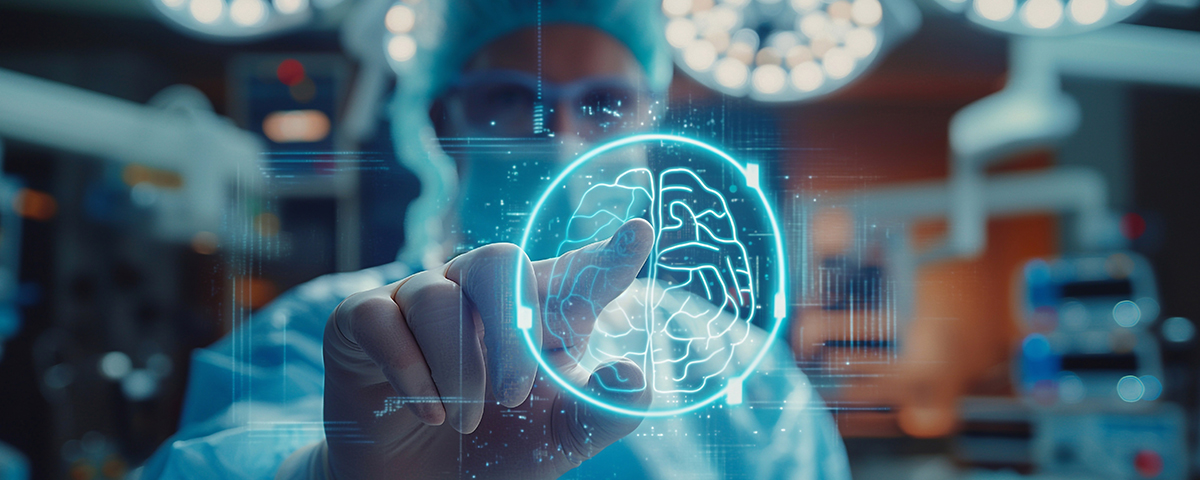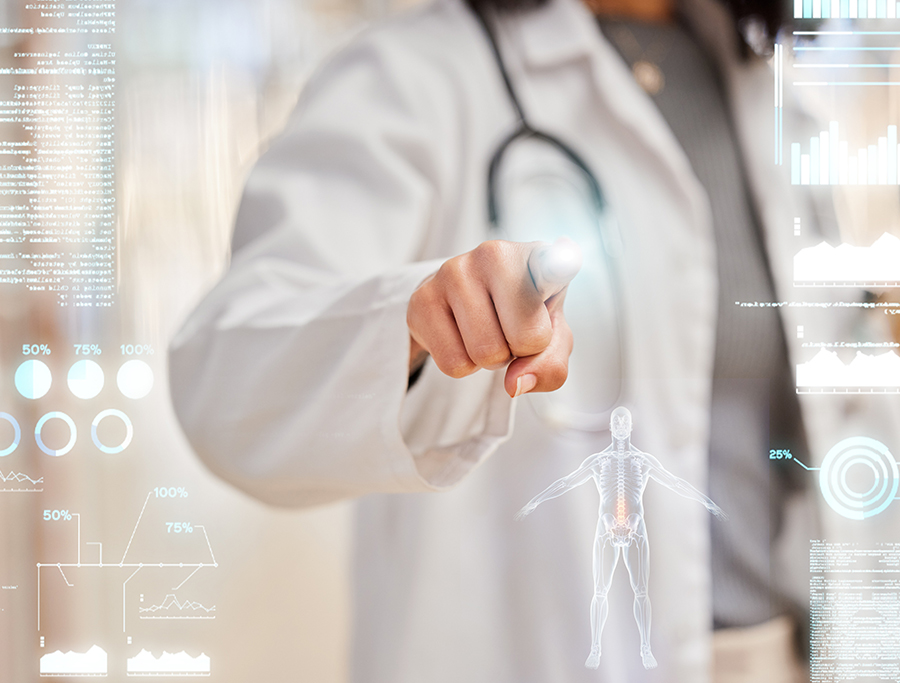Will artificial intelligence replace doctors?

Artificial intelligence has become an inseparable part of our everyday lives, and some time ago it also made its way into doctors' offices. As AI started achieving increasingly strong results in imaging diagnostics and data analysis, we began hearing the question more and more often: Will artificial intelligence replace doctors? While the idea of a future in which diagnoses are made without human involvement may sound tempting, it's important to understand that these technologies are designed to support - not completely eliminate - human work. So what kind of future do medical experts envision? Let's take a look.
Table of contents:
How can AI support doctors' work?
What risks come with artificial intelligence in medicine?
Will AI replace doctors?
In short:
- Artificial intelligence can improve physicians' efficiency and help specialists provide faster assistance to patients. However, AI will never replace doctors, because it lacks the human factor - empathy and the ability to understand nonverbal cues.
How can AI support doctors' work?
Before answering the question of whether AI in medicine could eventually replace human specialists, it's worth highlighting the benefits that artificial intelligence brings to healthcare. AI can ease the burden on the healthcare system and boost its efficiency. Its greatest strength lies in processing and analyzing enormous volumes of data - a task the human brain simply cannot compete with.

Artificial intelligence in medicine allows for significantly faster diagnostic decisions, and quicker detection of disease means faster treatment. For many conditions, early identification directly impacts not only health but also survival (for example, in cancer-related diseases). AI can rapidly analyze imaging test results (such as X-rays or CT scans), often catching details that the human eye might miss. In this sense, it acts like an early warning system, helping specialists guide patients toward the right treatment path more quickly.
Algorithms can analyze genetic data, lifestyle habits, and medical histories of thousands of patients to predict their risk of developing specific diseases. This makes AI a powerful preventive tool on a scale we’ve never seen before.
That's not all. Many doctors are overloaded with administrative work. Filling out forms and entering data consumes valuable time. With AI tools, these repetitive and time-consuming tasks can be automated, giving physicians more time for direct patient care.
Of course, doctors must learn to collaborate closely with AI, treating it as a valuable tool. Those who resist and rely solely on traditional methods may eventually find themselves less competitive and less attractive to employers.
What risks come with artificial intelligence in medicine?
When considering whether AI could replace doctors, it's important to acknowledge the risks associated with adopting these technologies in healthcare. The first major issue is legal responsibility. If AI makes a diagnostic error, who is accountable? The doctor who approves the diagnosis, the programmer who created the algorithm, or the hospital? To protect patients, appropriate regulations must be introduced - this is one of the most critical aspects of integrating AI into healthcare.
Another key area is privacy and the security of patient data. AI systems require access to enormous amounts of sensitive medical information. Ensuring this data is protected from breaches or unauthorized access is essential, so strict privacy protocols must be established.
It's also crucial to remember that even the most advanced algorithm cannot replace human sensitivity. Patients need empathy, conversation, and someone who will truly listen. Only a doctor can provide emotional support and interpret a patient's emotional state. Experts warn that implementing AI on a large scale may also shift a certain level of responsibility for health back onto patients themselves.
Will AI replace doctors?
No. AI will not replace doctors - but doctors who refuse to use AI may eventually be replaced by those who do. The future of healthcare is in the hands of professionals who combine human qualities such as critical thinking, ethics, and empathy with the analytical power of artificial intelligence. The doctor-AI duo means faster and more accurate diagnostics and treatment for patients, while physicians are relieved of administrative burdens and can focus on direct patient care.
